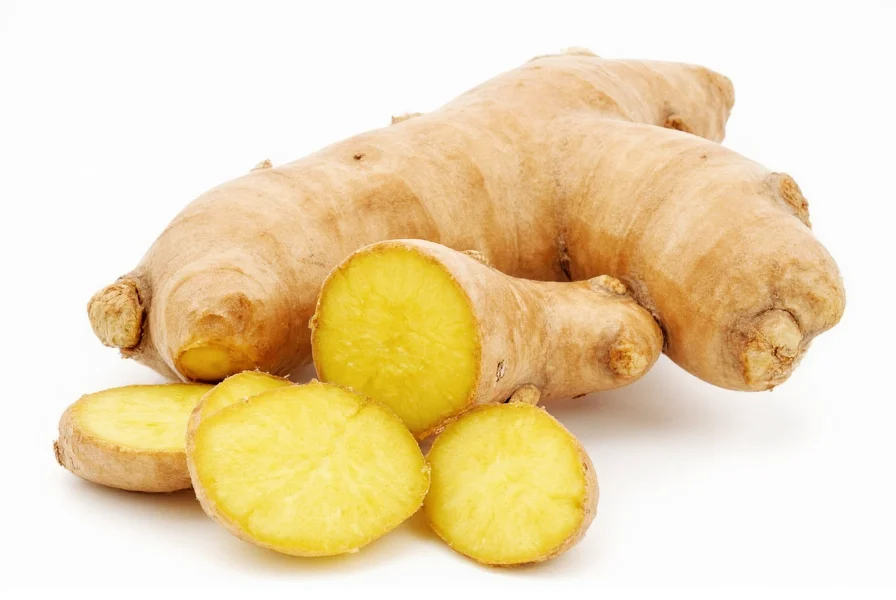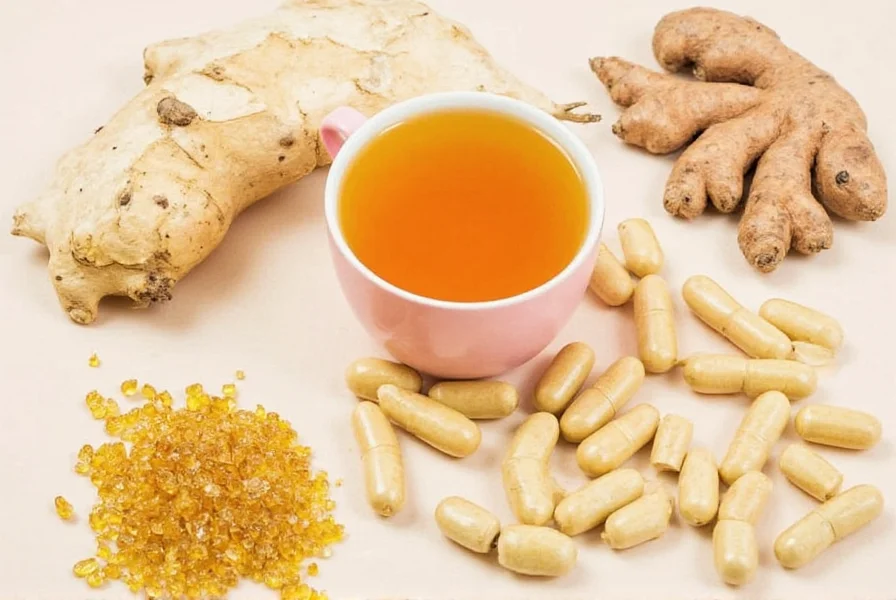Ginger is scientifically proven to be effective for nausea relief (including morning sickness and chemotherapy-induced nausea), reducing osteoarthritis pain, alleviating muscle soreness, and improving digestion. Its active compounds, particularly gingerols, provide anti-inflammatory and antioxidant benefits supported by clinical research.

The Science-Backed Benefits of Ginger: What Research Really Shows
Ginger (Zingiber officinale) has been used medicinally for over 2,000 years across Asian and Middle Eastern cultures. Modern science has validated many traditional uses while revealing new applications for this versatile rhizome. Unlike many herbal remedies with limited evidence, ginger stands out for having substantial clinical research supporting specific health benefits.Proven Health Applications of Ginger
| Health Benefit | Research Support Level | Effective Dosage Range | Time to Notice Effects |
|---|---|---|---|
| Nausea and vomiting relief | Strong (multiple RCTs) | 1-1.5g daily | Within 30-60 minutes |
| Osteoarthritis pain reduction | Moderate to strong | 500mg-1g daily | 2-4 weeks |
| Muscle pain relief | Moderate | 2g daily | 24-48 hours |
| Digestive motility improvement | Preliminary to moderate | 1.2g before meals | During digestion |
Digestive Health: Beyond Folk Remedy
Ginger's effectiveness for digestive issues represents one of its most well-documented benefits. Research shows ginger accelerates gastric emptying by up to 25%, which explains why it helps with indigestion and functional dyspepsia. A 2020 review in Nutrients confirmed ginger's role in reducing nausea from multiple causes including pregnancy (with 1g daily showing significant improvement), chemotherapy, and postoperative recovery. Unlike over-the-counter anti-nausea medications, ginger works through multiple pathways: it blocks serotonin receptors in the gut, reduces inflammation in the gastrointestinal tract, and modulates gut motility. This multi-target approach makes ginger particularly valuable for people seeking natural alternatives for managing digestive discomfort without pharmaceutical side effects.Inflammation and Pain Management
The anti-inflammatory properties of ginger primarily come from gingerols and shogaols, compounds that inhibit inflammatory pathways similar to NSAIDs but with fewer side effects. A comprehensive analysis published in Arthritis demonstrated that ginger extract (equivalent to 500-1,000mg daily of fresh ginger) significantly reduced knee osteoarthritis pain compared to placebo. Athletes have found ginger particularly valuable for reducing exercise-induced muscle pain. Consuming 2g of ginger daily for 5 days decreased muscle soreness by 25% in a controlled study, with effects becoming noticeable after 24 hours. This makes ginger a practical option for active individuals seeking natural recovery support.Immune Support and Antioxidant Effects
While ginger isn't a cure for infections, its immunomodulatory effects help regulate the body's response to illness. The antioxidant compounds in ginger combat oxidative stress that exacerbates inflammation during colds and flu. Research shows ginger enhances the activity of natural killer cells and modulates cytokine production, potentially reducing symptom severity. Unlike vitamin C which primarily acts as an antioxidant, ginger works through multiple mechanisms including inhibiting viral replication (particularly for respiratory viruses) and reducing the inflammatory response that causes many cold and flu symptoms.Practical Usage Guidelines
Determining how much ginger to take depends on your specific health goals:- For nausea: 1g of fresh ginger or 250-500mg of standardized extract taken 30 minutes before potential nausea triggers
- For arthritis pain: 500mg of ginger extract twice daily or 1-2 inches of fresh ginger steeped in hot water
- For digestive support: 1.2g taken 30 minutes before meals

Safety Considerations and Interactions
Ginger is generally safe for most adults at recommended doses, but certain precautions apply:- May interact with blood thinners like warfarin due to mild anticoagulant properties
- Diabetics should monitor blood sugar as ginger may enhance medication effects
- Those with gallstones should consult a physician before regular consumption
- High doses (over 4g daily) may cause heartburn or mouth irritation
What the Research Doesn't Support
Despite popular claims, current evidence doesn't strongly support ginger for:- Significant weight loss (minor metabolic effects only)
- Cancer treatment (though it may help manage treatment side effects)
- Lowering cholesterol substantially
- Curing infections
Choosing Quality Ginger Products
When selecting ginger products, consider these factors:- Fresh ginger should be firm with smooth skin and minimal wrinkles
- Dried ginger powder loses potency over time; choose recently packaged products
- Supplements should specify gingerol content (minimum 5%)
- Organic certification reduces pesticide exposure











 浙公网安备
33010002000092号
浙公网安备
33010002000092号 浙B2-20120091-4
浙B2-20120091-4